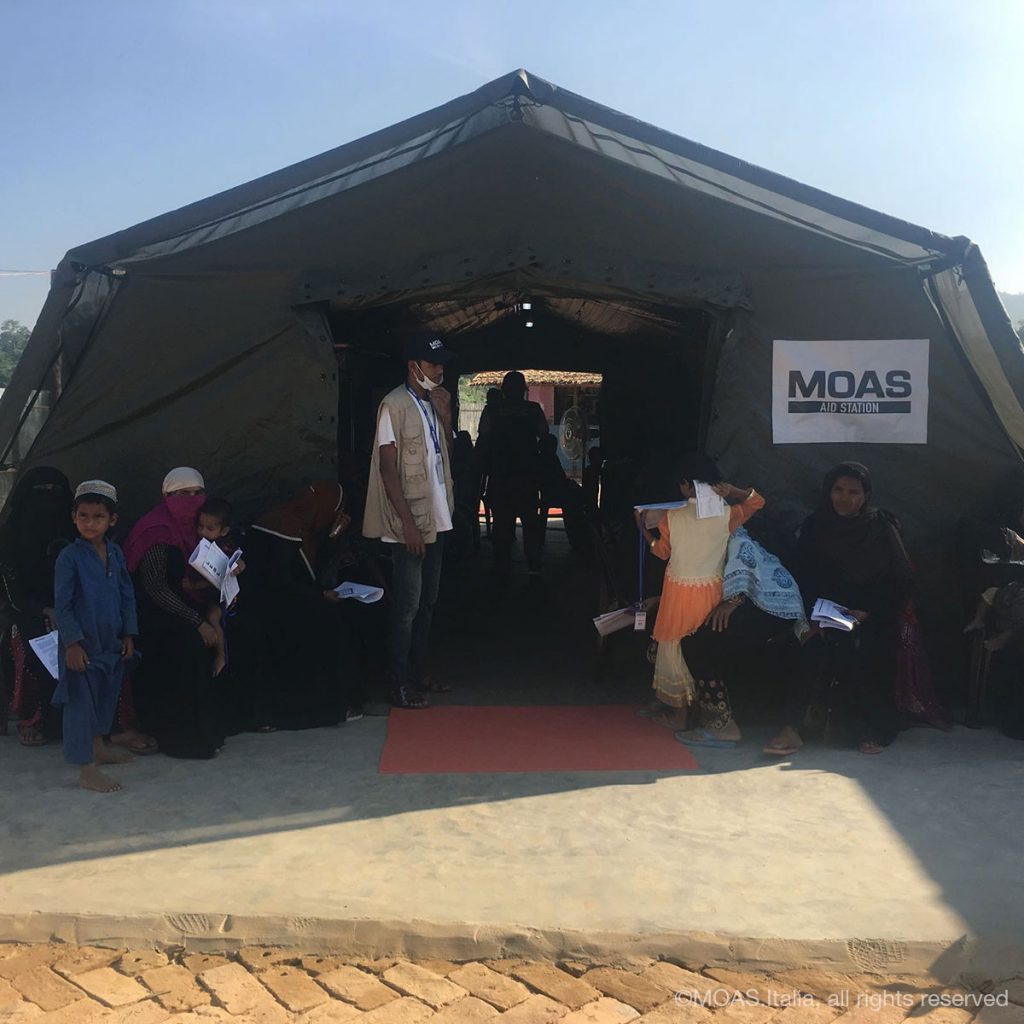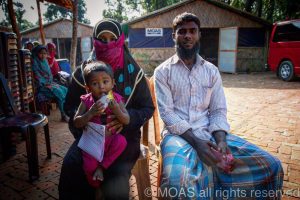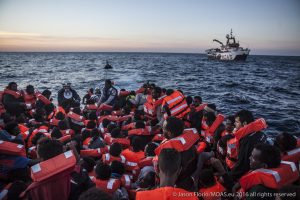Many faces of my latest stay in Bangladesh are still in my heart and memory. I remember the warmth and innocent smiles of kids, as well as the hope of their mothers who bring them to our Aid Stations to get the medical treatments they have always been denied for being stateless and discriminated in Myanmar.
I remember grateful fathers who can now stop being concerned for the health of their children, who were a major target of violence and persecution, and fled last August in dire conditions to seek sanctuary in Bangladesh. I remember the devotion and dedication of our medical team, committed to providing the best care to everyone, to comforting those who survived the violence marking their bodies. I remember the tender relationship with Jhuma, a mother of 7 who saw her husband slaughtered by army officials in Myanmar. Jhuma decided to share her story with us, the story of an exodus enforced by escalating violence, rapes and villages burned over the last 8 years. She tells us that their living conditions in Myanmar used to be acceptable, poverty was not that extreme and her people could decently survive despite being a stateless Muslim minority. Soon after everything started changing, staying there became impossible and fleeing was the only option. “We count less than animals”, she explains when asked about the chances of eventually returning from Bangladesh to Myanmar based on agreements between these 2 countries. “I will go back only if there are humanitarian organizations to safeguard human rights”.

A family receives medical care at one of our MOAS Aid Stations in Bangladesh
She knows what she wants and speaks with great dignity, even though it is very difficult to accept the reality surrounding us due to the growing number of makeshift camps and settlements. Once again, I realize that -beyond every crisis and the chaos it triggers- in the Mediterranean or in Bangladesh amid Rohingya settlements, the human dimension is the most important element and the bond with people is the most precious thing after every new encounter.
This is why I am happy that our 2 clinics in Unchiprang and Shamlapur have become a gathering area both for Rohingya refugees in these camps and for some local patients with urgent cases: their importance goes beyond medical assistance, nurturing the human dimension through listening, comfort and care

In Shamlapur and Unchiprang together more than 21,000 people have already been visited since October 14th, but I wish to remember every person who came to us just for a smile, to sit on a chair in the shade, to use our sanitation facilities and clean water, to properly wash their hands, to find the serenity and peace lost after fleeing their homeland.
So, as the Phoenix used to be a lifeline in a sea of indifference where people were silently drowning, our MOAS Aid Stations have become an oasis of dignity in the midst of an appalling humanitarian crisis, which we all have to mitigate as soon as possible.



